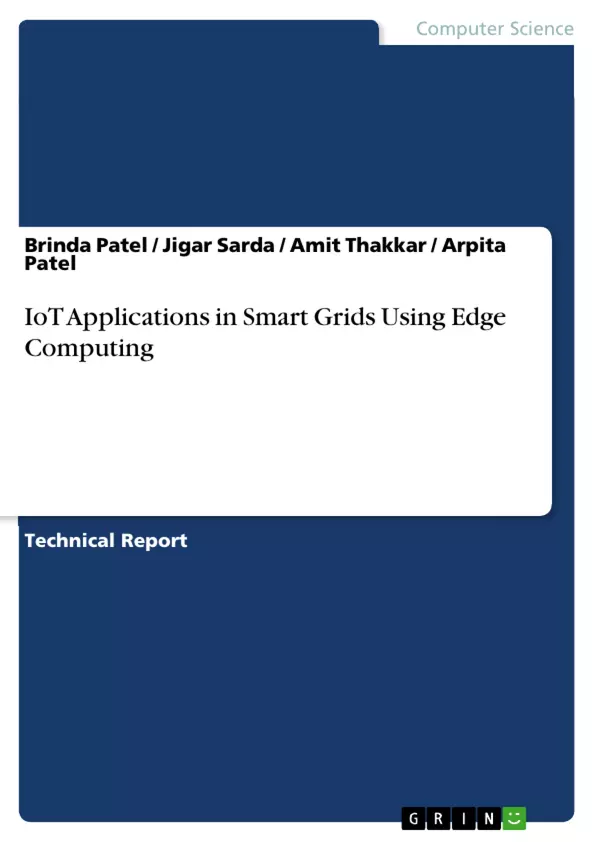The suggested framework of this work opens the door for creative solutions that support a more resilient and sustainable
energy infrastructure in addition to enhancing the capabilities of currently available Smart Grid applications.
Smart Grid integrates renewable and green technology into the traditional electrical infrastructure. Smart embedded gadgets with sophisticated decision-making capabilities will boost Smart Grid's efficiency. Energy industry has seen a transformation because of the incorporation of Internet of Things technology in Smart Grids. Edge Computing is applied to enhance efficiency and reliability of Smart Grid operations. A complete ecosystem for smart cities is created when digital platforms, edge computing, and IoT solutions are combined. They make it possible for massive amounts of data to be gathered, processed, and analysed, enabling city officials, businesses, and citizens to make wise decisions and promote innovation. In conclusion, a convincing paradigm for addressing the changing issues in the energy industry is presented by the combination of IoT and Edge Computing in Smart Grids.
Inhaltsverzeichnis (Table of Contents)
- 1. INTRODUCTION
- 1.1 Overview of Internet of Things (IoT)
- 1.2 Overview of Smart Grid
- 1.3 Overview of Edge Computing (EC)
Zielsetzung und Themenschwerpunkte (Objectives and Key Themes)
This work aims to explore the integration of Internet of Things (IoT) technology and Edge Computing (EC) within Smart Grid systems. It investigates the benefits and challenges of this combined approach in enhancing efficiency, reliability, and sustainability within the energy sector.
- Integration of IoT and Edge Computing in Smart Grids
- Enhancement of Smart Grid efficiency and reliability
- Data processing and analysis in Smart Grids
- Addressing challenges in energy infrastructure
- Sustainable and resilient energy solutions
Zusammenfassung der Kapitel (Chapter Summaries)
Chapter 1: Introduction This chapter provides an overview of the Internet of Things (IoT), Smart Grids, and Edge Computing (EC), laying the groundwork for understanding their individual functionalities and potential synergies. It highlights the increasing importance of IoT devices and the need for efficient data processing solutions, introducing Edge Computing as a viable alternative to cloud-based solutions for real-time data management in resource-constrained environments like Smart Grids.
Schlüsselwörter (Keywords)
Internet of Things (IoT), Smart Grid, Edge Computing (EC), Data processing, Energy efficiency, Sustainability, Resilient infrastructure, Real-time data analysis, Wireless communication.
- Arbeit zitieren
- Brinda Patel (Autor:in), Jigar Sarda (Autor:in), Amit Thakkar (Autor:in), Arpita Patel (Autor:in), 2024, IoT Applications in Smart Grids Using Edge Computing, München, GRIN Verlag, https://www.hausarbeiten.de/document/1499929


